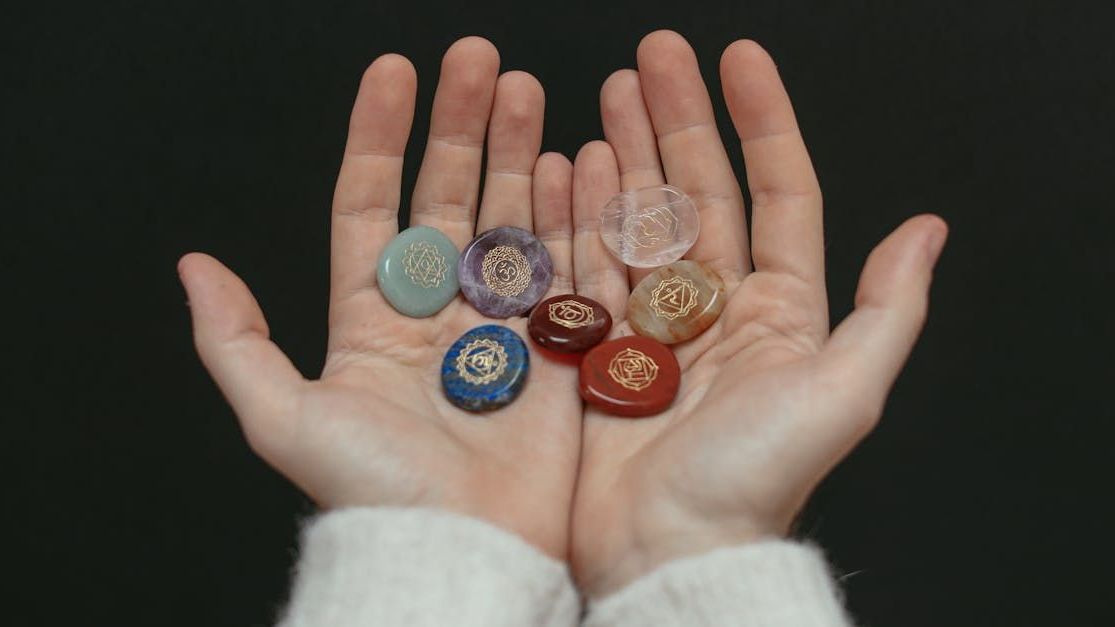



Taming the Monkey Mind: Simple Mindfulness Practices for a Happier Life
Liz Campbell • May 21, 2024
SubscribeAs someone who has been practicing yoga for nearly twenty years and has taught thousands of classes, I've noticed that for many people, myself included, the most challenging part of yoga is quieting the mind.
In asana, you may gain the physical strength and flexibility that allows your body to form into many interesting shapes, but your state of the mind and the ability to focus on the moment right now, is what determines the quality and effectiveness of your yoga experience. In other words, if you avoid the inner work and continue allowing your untamed mind to take over and distract you from being in the moment, you’re missing out on some of the important benefits that yoga has to offer.
Some may argue that meditation and mindfulness are interchangeable terms, but they are not exactly the same thing. Mindfulness is simply practicing a present and nonjudgmental state of mind where you become hyper-aware of your thoughts, emotions, or experiences the moment they are happening. Meditation is a tool that is used to develop a regular practice of mindfulness. It’s possible to practice mindfulness without necessarily meditating, however, you can't practice meditation without mindfulness. Mindfulness can be practiced anywhere at any time of day, with eyes opened or closed, and the best part is that it won’t take very long for you to notice the positive effects.
The Importance of Mindfulness
In our fast-paced society, mindfulness is a relatively uncommon practice, and our minds stay unchecked as a result. After enough neglect, our mind can start behaving very similar to an untrained monkey, jumping from thought to thought, throwing metaphorical 💩 at you left and right. The craziest part is that we allow this monkey mind to influence our entire life.
Anxiety, stress, worry, doubt, overthinking, and negative self-talk are just some of the daily mental problems that our monkey mind throws at us. At times, we can get so used to this kind of suffering, that it just becomes a regular part of every-day life. Those who want a quick fix turn to pharmaceuticals to mask these problems, but prescription drugs unfortunately do not actually address the root cause, making us addicted and dependent on them. The saddest part is that so many of us are not aware that by practicing mindfulness, we can begin to relieve ourselves of these mental conditions, and even prevent them from consuming our minds to begin with.
Rewiring Your Mind
Every time we allow the monkey in our mind to dictate our every thought, word, and action, we unknowingly give it more control. When this cycle is repeated, the monkey continues to grow stronger. If this is something you can relate to, there is good news; it just takes a little bit of mindfulness to start rewiring your mind and help you feel much more at peace.
As you start to practice mindfulness more often, it will naturally begin to feel easier and more like second nature. With time, you will begin to feel its positive effects ripple out into all of the intricate details of your life. You may notice how each experience starts to feel richer, juicier, happier, and as though more and more blessings are entering your life. To get you started, here is a list of simple mindfulness rituals for you to practice daily, or as many days in a row as you can. 😉
Morning Stillness
Instead of hitting the ground running first thing in the morning, try starting off your day with a few moments of stillness. Before getting out of bed, take deep breaths, notice the sensations in your body, and set an intention for the day. This simple practice may be a quick one, but it can really help ground you and set a positive tone for the day ahead.
Mindful Eating
Whenever you eat food, try to pay more attention to the taste, texture, and smell of each bite. Chew slowly, savoring each mouthful, and appreciate the nourishment your food provides. Mindful eating can enhance your enjoyment and greatly improve your digestion.
Daily Gratitude
Take a few quick minutes every day to write down things you appreciate. This can shift your focus from being negative to positive and help you attract more abundance in so many different areas of your life. Just a little gratitude journaling can really boost your mood and overall well-being.
Body Scan
At moments throughout the day, try scanning your body from head to toe, and notice any areas of tension or discomfort. Breathe a little more into these areas and practice letting go of any tension you may be holding onto. This kind of body scan can help you become more aware of your physical state and reduce a ton of stress.
Walking Meditation
Instead of rushing from one place to another, practice walking mindfully. Pay attention to the sensation of your feet touching the ground, and notice the sights and sounds around you. Mindful walking can turn everyday movements into opportunities for mindfulness and presence.
Daily Self Compassion
When you're feeling stressed or overwhelmed, pause and acknowledge your feelings with kindness. Repeat phrases like "May I be kind to myself" or "May I give myself the compassion I need." Self-compassion can soften your stress response and promote emotional healing.
Unplug Often
Take regular breaks from screens and technology. Use this time to reconnect with yourself, engage in hobbies, or spend quality time with loved ones. Disconnecting from screens can not only improve your mental clarity, it helps strengthen your relationships, too.
Focused Breathing
Throughout the day, take moments to focus on your breath. Notice the sensation of your inhale expanding your belly and chest. Notice your exhale lengthening until your lungs are empty. Try doing 5, 10, or 15 deep conscious breaths in a row. Conscious breathing does a fantastic job at calming your mind and bringing you into the present moment.
Loving-Kindness Prayer
Practice sending love and well-wishes to yourself and others. Repeat phrases like "May I be happy, may I be healthy, may I be safe, may I live with ease." Loving-kindness meditation can create a sense of connection and emotional warmth.
Reflective Ending
Before bed, reflect on your day with compassion. Acknowledge any challenges you faced without judgment, celebrate your accomplishments, and set intentions for tomorrow. Ending your day with reflection can enhance your self-awareness and prepare you for a restful sleep, which will help you begin a new cycle of mindfulness and ease into the following morning.
Small Steps to Mindfulness
As you move through your day more consciously, remember it’s not about being perfect. You don’t need to sit in long meditations daily to feel the benefits, starting small is key. Like I mentioned earlier, gradually incorporating these little mindful practices into your day makes them more subconscious so that soon, the countless benefits will become noticeable.
You will feel calmer.
Your breath will be slower.
Your mind will begin to quiet down.
And you will begin to feel more like your natural self.
Allow each day to be different and give yourself grace as you work toward positive change.
With love and deep belly breaths, Liz




